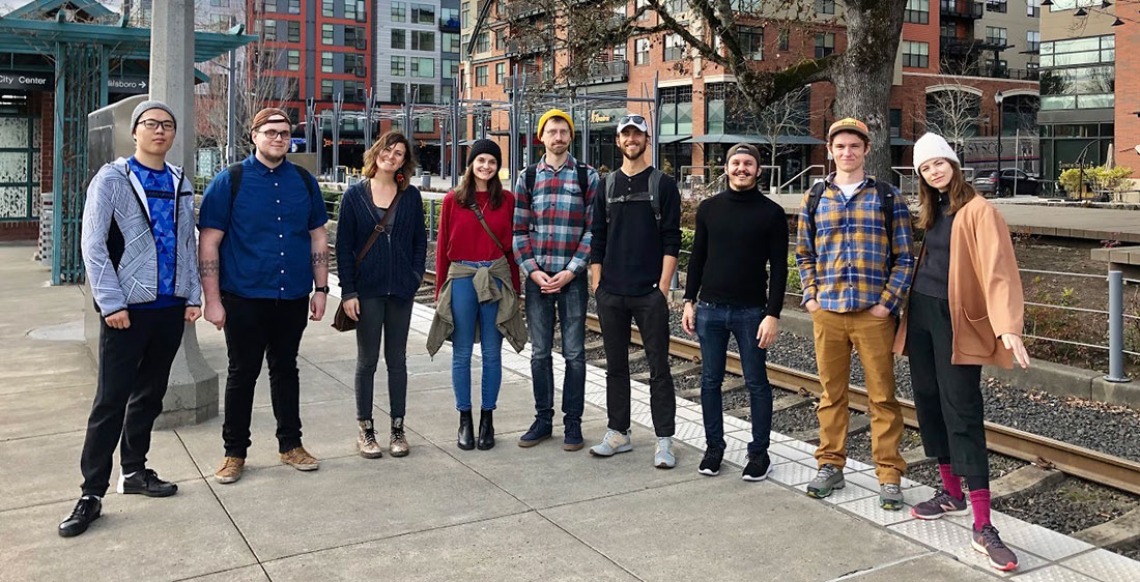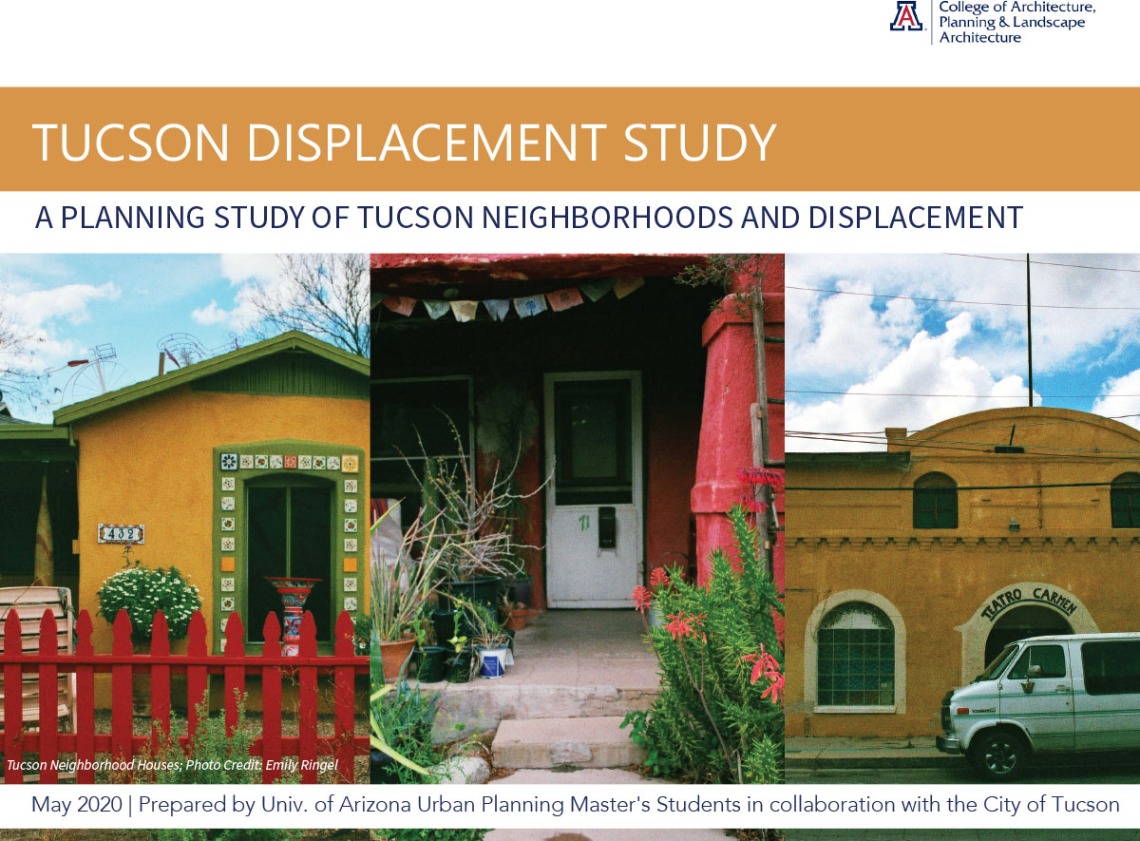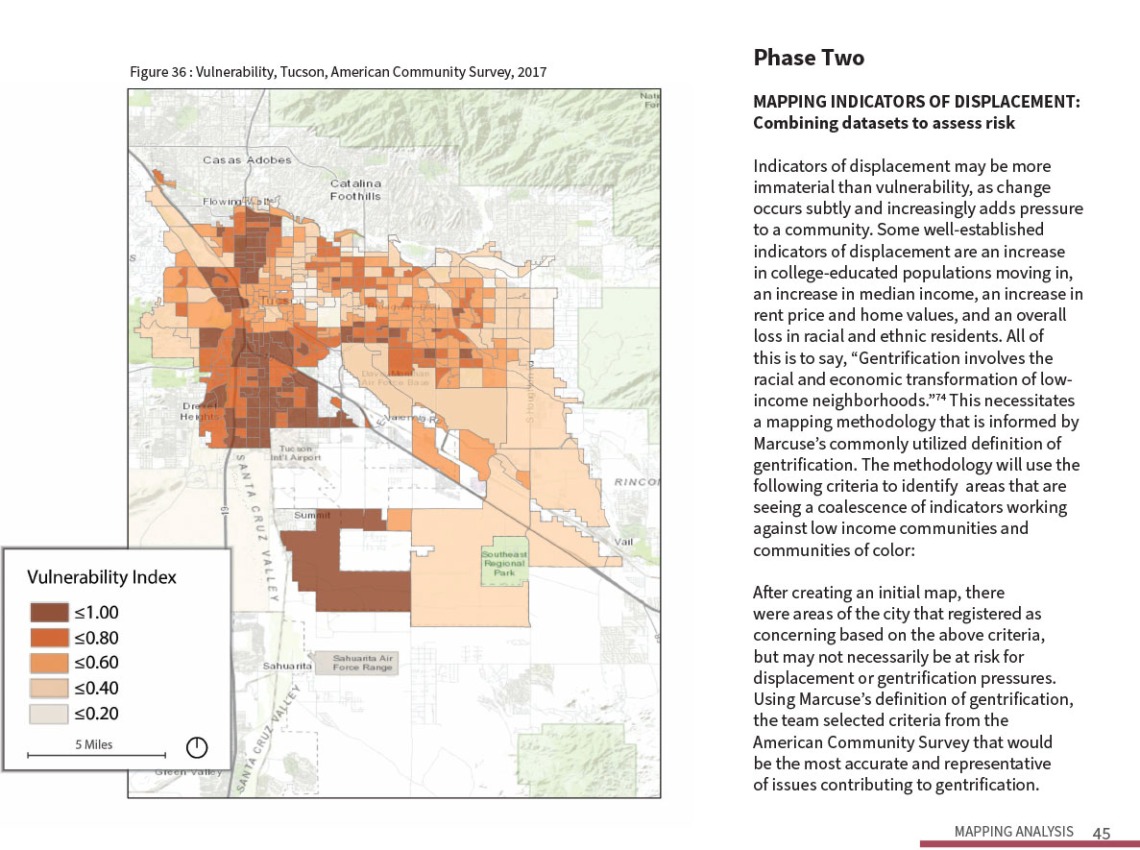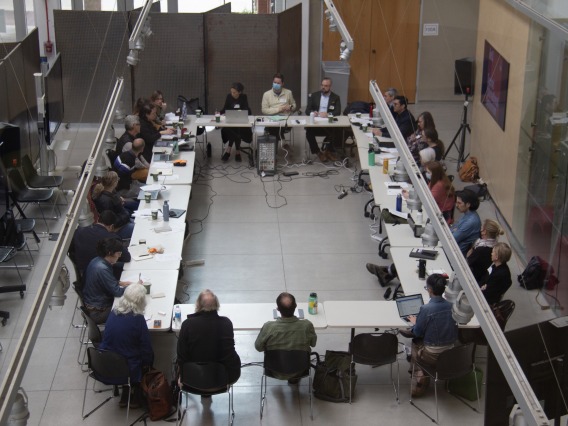UArizona Urban Planning Graduate Student Project Helps City of Tucson Address Displacement Risk, Wins State Planning Award

CAPLA MS Urban Planning students in Portland, Oregon, as part of their research for the Tucson Displacement Study. Photo courtesy Arlie Adkins.
Students from the University of Arizona’s Master of Science in Urban Planning program have been recognized by the American Planning Association Arizona chapter for their work with the City of Tucson on planning and policy responses to displacement and gentrification. The project and final report, Tucson Displacement Study: A Planning Study of Tucson in Neighborhoods and Displacement, were recognized as the best graduate student planning project of 2020.

Tucson Displacement Study: A Planning Study of Tucson Neighborhoods and Displacement, created by MS Urban Planning students in collaboration with the City of Tucson.
Students in the College of Architecture, Planning and Landscape Architecture Planning Projects course first conducted a national review of best practices for preventing and addressing the negative impacts of displacement to identify those most suitable to the Tucson context.
The graduate students then used geographic information systems (GIS) and other data-driven analytical tools to identify and map areas of Tucson most susceptible to displacement pressures. These maps allowed the students to focus on the neighborhood level so that their planning and policy recommendations applied both citywide and to those communities most at risk. Recommendations from the students touched on affordable housing, community engagement and transportation investment.
The course was taught by Arlie Adkins, associate professor of urban planning, a leading researcher on transportation, walkability and affordable housing. The students also worked closely with the City of Tucson, including Koren Manning, Planning and Development Services, and Ann Chanecka, now deputy director for Housing and Community Development.

Sample page from Tucson Displacement Study.
“The final report shows the extensive research and thought that went into the project,” says Chanecka. “The recommendations the students developed will be discussed and considered by Tucson’s newly formed Commission on Equitable Housing and Development [and are] transferable as the Commission develops a plan for action to help address displacement of Tucson residents and local businesses.”
As part of the project, students travelled to Portland, Oregon, a city facing extreme displacement pressures, to learn from local officials and experts about preventing and reducing negative impacts of displacement.
MS Urban Planning students who authored the study are Warren Bristol, Quinton Fitzpatrick, Ariel Fry, Julian Griffee, David Jellen, Samuel Jensen, Lena Porell, Andrew Quarles, Lindsey Romaniello and Yicheng Xu.
For additional information about student projects at CAPLA, or to partner with CAPLA on a community project, contact Kay Olsen Brown, director of alumni relations and community engagement, at 520-626-3629 or kayobrown@arizona.edu.



